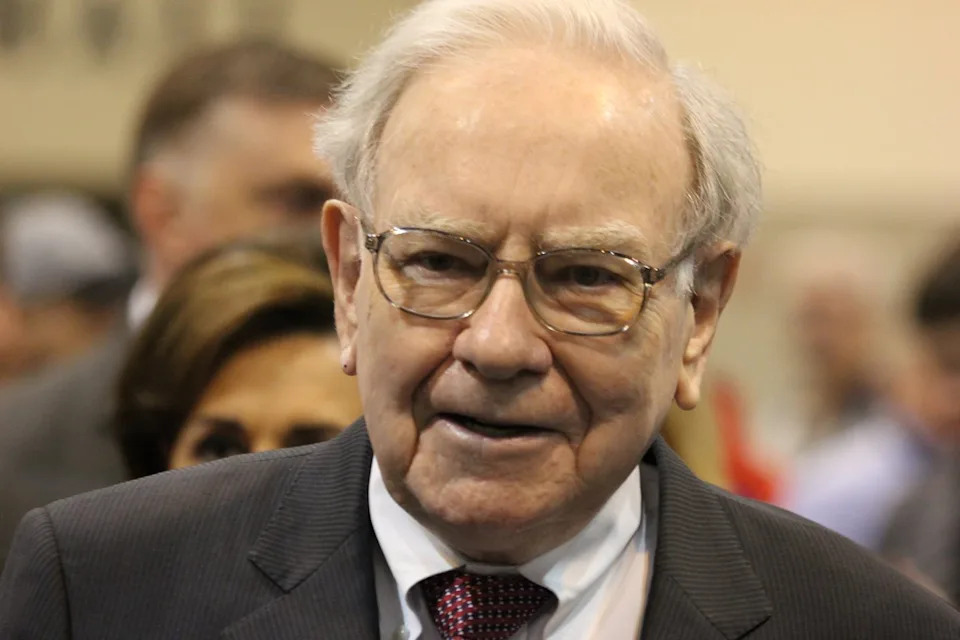Key Points
Once the Trump administration began to implement sweeping tariffs against major trading partners of the U.S. in April, investors, sensing a significant disruption in the market, ditched U.S. risk assets and ran for cover. They piled into cash, gold, and assets they believed could provide a port in the storm.
One of those happened to be Berkshire Hathaway (NYSE: BRK.A) (NYSE: BRK.B) , one of the largest conglomerates in the world, run by arguably the world's best investor, Warren Buffett. Berkshire's stock was up nearly 10% (as of June 4), compared to the broader benchmark S&P 500 's roughly 2% gain. Berkshire's stock also hit all-time highs earlier this year. Is the stock still a buy today?
A well-balanced business that's not inexpensive
Aside from Buffett and his strong team of investing lieutenants and managers, one thing investors seem to like about Berkshire is the diversity of businesses under the large conglomerate's umbrella. Berkshire not only operates a massive stock portfolio, but also a large insurance business as the owner of Geico. The company also owns a slate of energy assets, the Burlington North Santa Fe Railroad, and a mortgage business, among others.

It might be difficult for some of these sectors to operate alone, but together they provide diversity and have turned Berkshire into a juggernaut that generated over $89.5 billion of earnings in 2024. It also had $47.4 billion of operating earnings, which Buffett believes is a better metric for the company because it strips out volatile unrealized capital gains and losses.
Another reason investors view Berkshire as a flight to safety is because of the company's massive cash hoard. Combined, Berkshire's cash, cash equivalents, short-term U.S. Treasury investments, and investments in fixed-maturity securities totaled an incredible $357 billion. Berkshire now reportedly owns about 5% of the short-term Treasury bill market. The massive pile of cash gives Berkshire a huge margin of safety -- and also a war chest, should opportunities arise in the market that Berkshire finds compelling.
Now, after a strong run, it's always important to look at a stock's valuation. One way investors like to value Berkshire is on a price-to-tangible book value (TBV) basis, which is a frequent way investors value bank and insurance stocks.
As you can see above, Berkshire's stock recently traded slightly under two times TBV. That's down from highs the stock reached earlier this year, but also above the company's five-year average.
Can you still buy Berkshire?
While Berkshire's stock does look a bit expensive right now, I still think long-term-oriented investors will be served well by owning it. For one, Buffett and his team have built Berkshire to last, meaning it can perform well through the entirety of the economic cycle, including the tougher parts.
Berkshire's equities portfolio has exposure to growth stocks like tech and artificial intelligence, but management are also clearly big believers in oil and gas, which they may view as a finite resource. Not only does the company own and operate energy businesses, but Berkshire has major stakes in large domestic oil and gas producers like Occidental Petroleum and Chevron . These stocks should perform well if the price of oil, which trades in the low $60s per barrel, eventually rises.
Investors may be concerned over the fact that Buffett, who is 94 years old, is preparing to retire at the end of 2025 after over six decades on the job. No one will ever be able to replace the Oracle of Omaha, but incoming CEO Greg Abel is more than capable. Without the Buffett brand, I think Berkshire may also try to entice investors by returning more capital to shareholders through stock repurchases and perhaps even a dividend, which Berkshire has never paid before.
So even with the departure of Buffett, who will stay on as chair of the company's board of directors, it's not all doom and gloom. There is still much more for investors to look forward to.
Before you buy stock in Berkshire Hathaway, consider this:
Consider when Netflix made this list on December 17, 2004... if you invested $1,000 at the time of our recommendation, you’d have $669,517 !*
Now, it’s worth noting Stock Advisor ’s total average return is 792% — a market-crushing outperformance compared to 171% for the S&P 500. Don’t miss out on the latest top 10 list, available when you join Stock Advisor .
